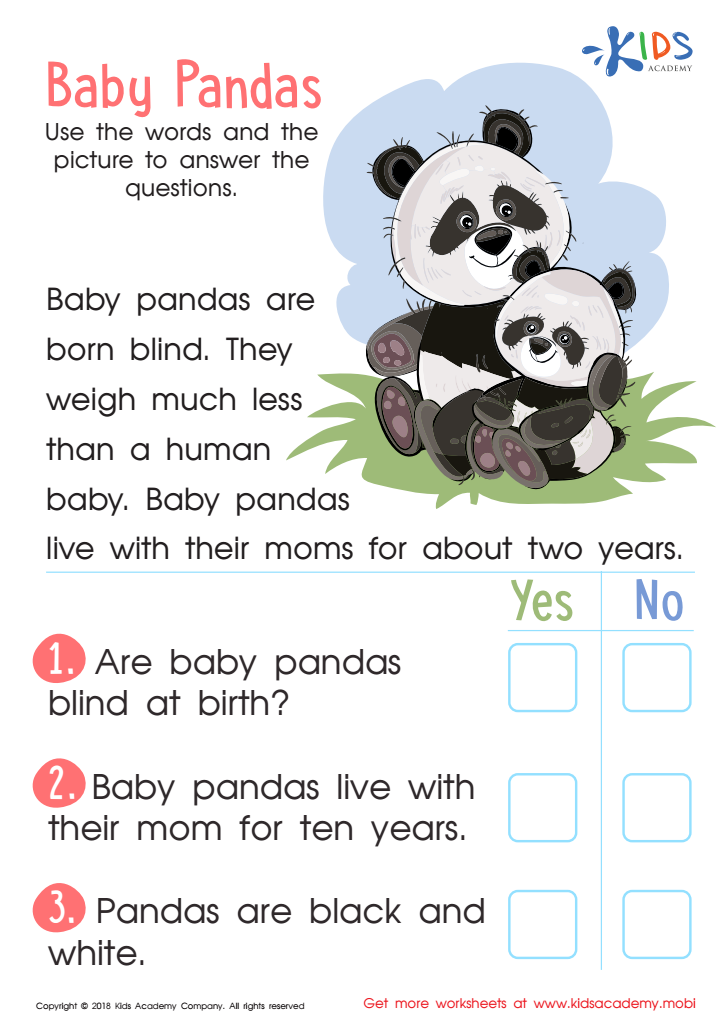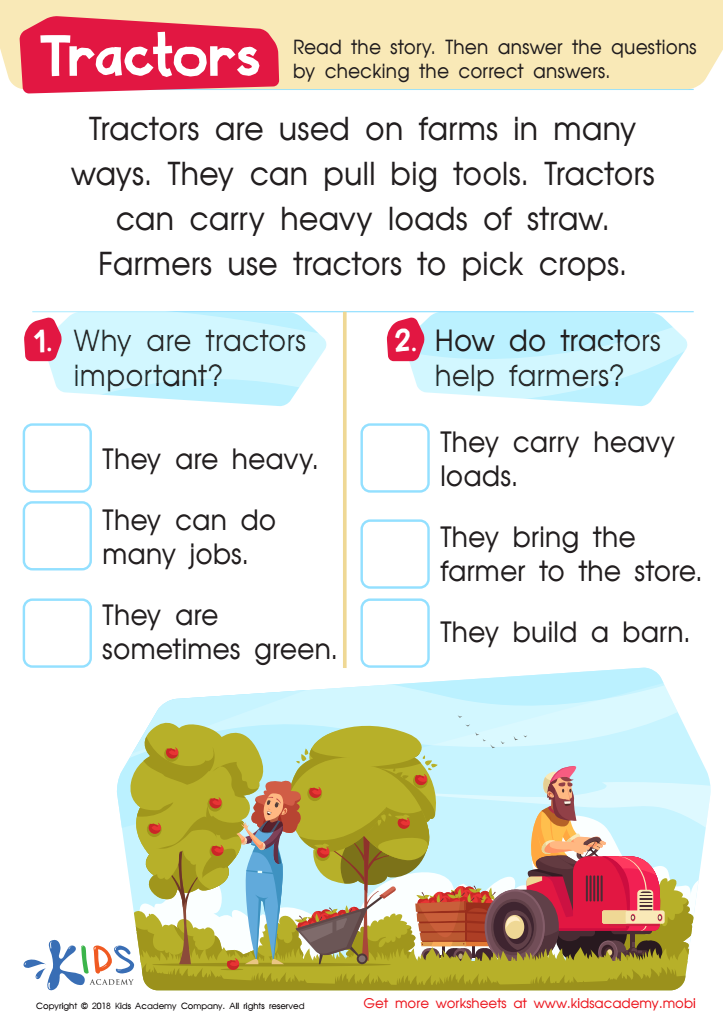Counting practice Reading Non-Fiction Worksheets for Ages 7-9
3 filtered results
-
From - To
Enhance your child's reading and math skills with our engaging Counting Practice Reading Non-Fiction Worksheets, designed specifically for ages 7-9. These worksheets seamlessly integrate counting exercises with informative non-fiction texts, making learning both fun and educational. Children will explore various topics while practicing their counting abilities, reinforcing their comprehension and critical thinking skills. Each worksheet encourages independent learning and aligns with curriculum standards, ensuring that your child is on the right track. Perfect for home or classroom use, our resources foster a love for reading and provide essential practice in foundational math. Download your worksheets today and watch your child thrive!


More Octopus Facts Worksheet


Baby Pandas Worksheet


Tractors Worksheet
Counting practice and reading non-fiction are crucial components of a well-rounded education for children ages 7-9, and parents or teachers should prioritize them for several reasons.
Firstly, counting practice develops foundational math skills necessary for everyday life. At this age, children are overcoming more complex concepts such as addition, subtraction, and beginning to understand multiplication. These skills foster critical thinking and problem-solving abilities essential in academics and personal decision-making.
On the other hand, non-fiction reading broadens children’s knowledge about the world around them. This age group is naturally curious, and non-fiction texts provide them with factual information about various subjects, from science to history. Engaging with these materials helps enhance their vocabulary, improves comprehension skills, and fosters a love for reading.
Combining both skills, children learn to apply mathematical reasoning in real-world contexts while deepening their understanding of subjects through evidence-based texts. This integrated approach promotes confidence, encourages inquiries, and prepares young learners for future academic challenges. Hence, both counting practice and non-fiction reading should be prioritized in early education as they lay the groundwork for lifelong learning and critical thinking skills. Supporting these areas fosters well-rounded, informed, and capable individuals.
 Assign to My Students
Assign to My Students















